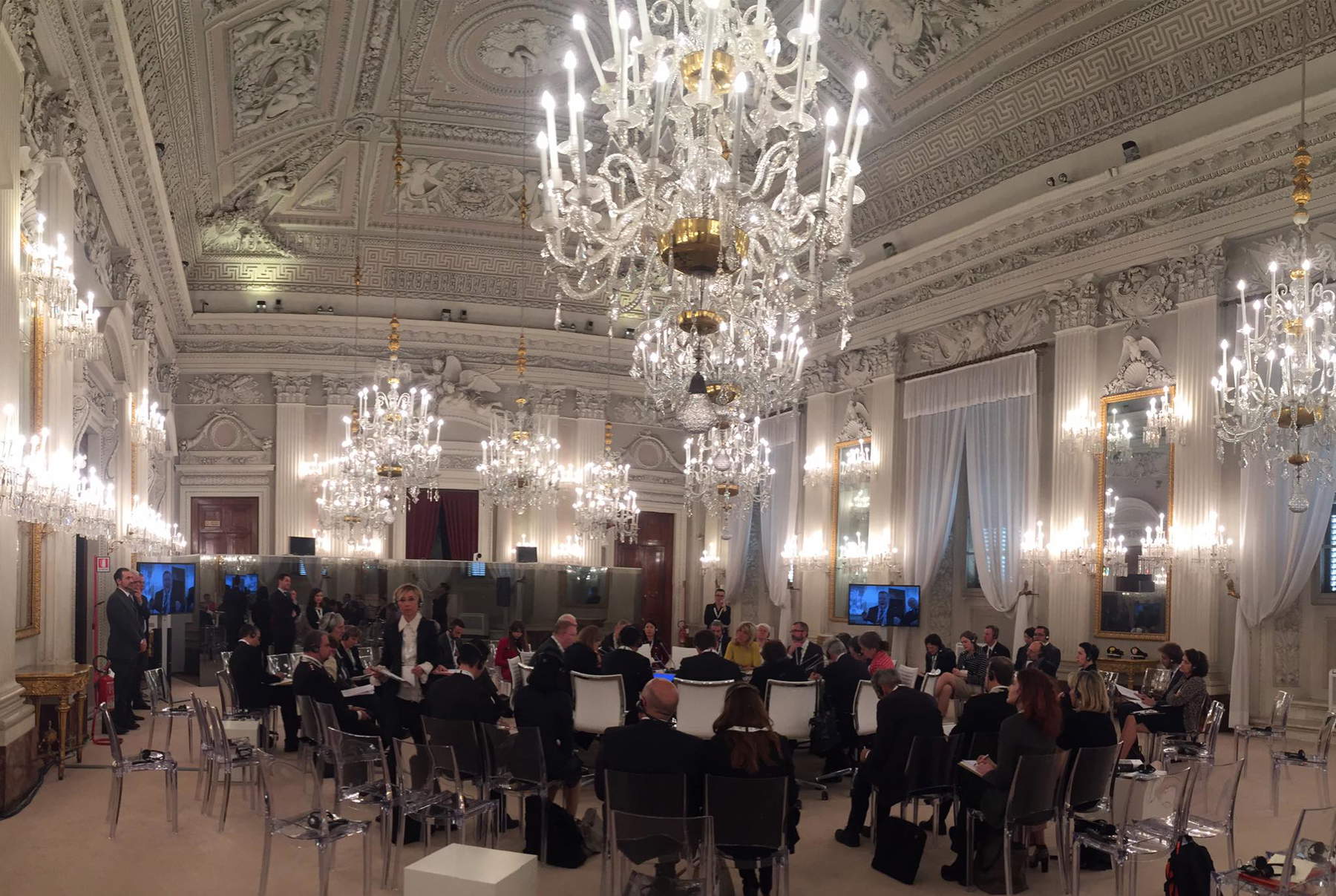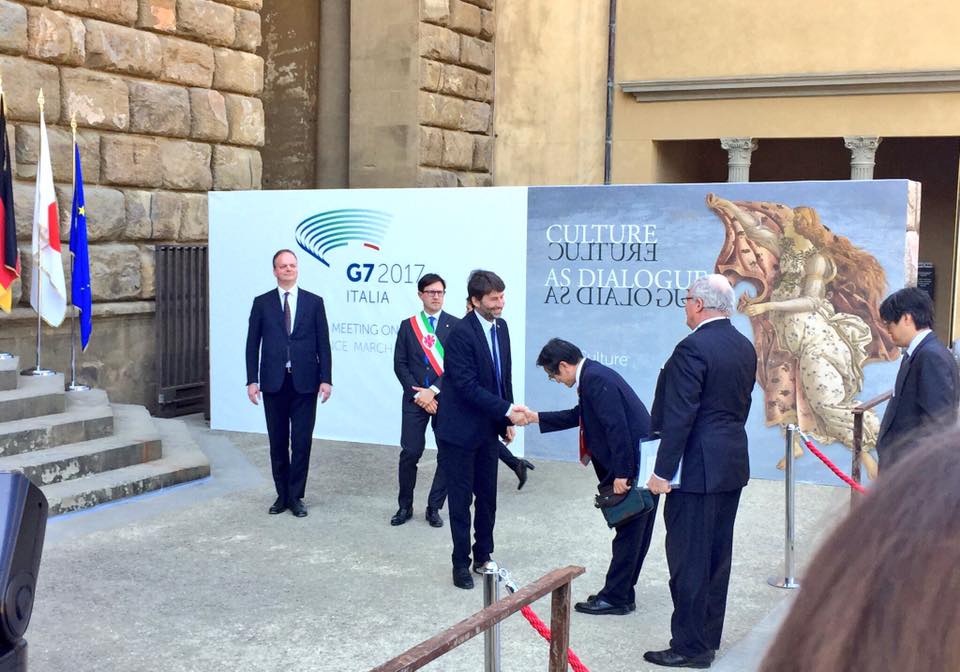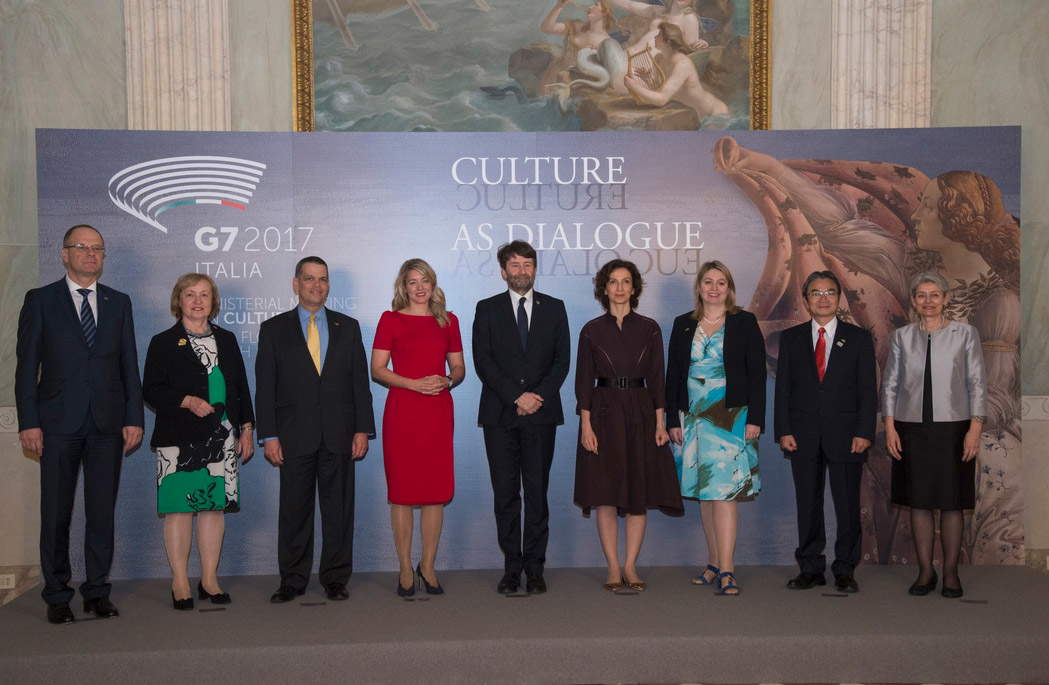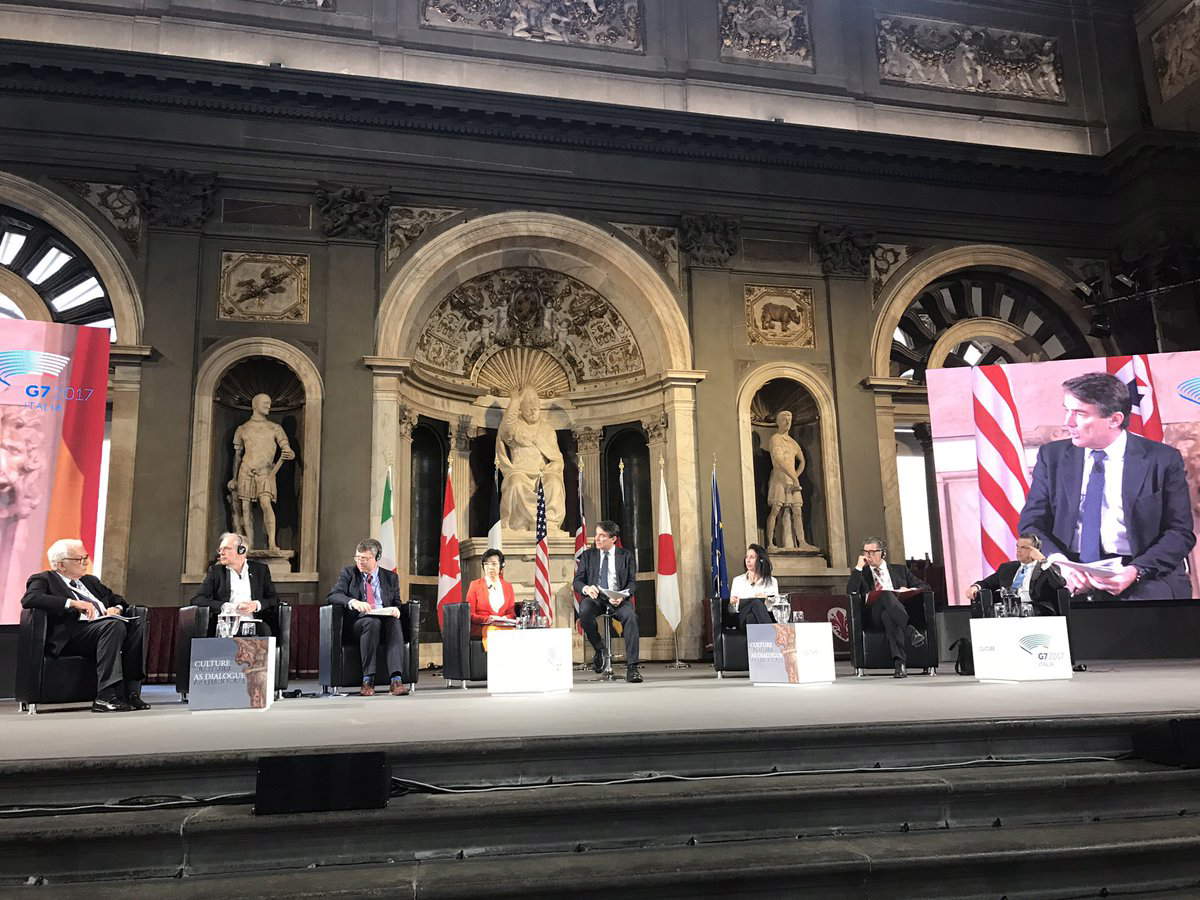What is the G7 of Culture
The G7 of Culture, also known as the “G7 of Culture Ministers,” is a summit that brings together representatives of G7 member countries with the aim of discussing issues related to culture, cultural heritage protection, and international cultural policies. The G7 Culture G7 is basically a meeting of the culture ministers of the G7 countries, which takes place as part of the traditional G7, but with a specific focus on cultural issues and their impact in the international context. It has had only one edition so far, the one held in Florence in 2017. The second is scheduled for 2024 in Naples.
In fact, the decision to bring together culture ministers is not mandatory or binding on the country organizing the G7: since the first edition of the G7 Culture, there have been no other meetings organized with the same emphasis as the one in Florence (if we exclude the one held in 2022 in Bonn, which was, however, focused on the topic of media, and was not presented as G7 Culture). However, culture has always been one of the fundamental pillars of human societies. It is through art, history, traditions and cultural heritage that dialogue between peoples and civilizations is fostered. And in a global context marked by conflict, climate change and economic transformation, culture is often under threat, making it necessary to have a shared commitment to its protection and promotion. It is against this backdrop that the first G7 of Culture was born.

What is the G7 of Culture?
To fully understand the G7 Culture, it is essential to first clarify what the G7, also known as the “Group of Seven,” is. The G7 is an intergovernmental forum formed by the major advanced economic powers on the planet: the United States, Canada, Japan, Germany, France, Italy and the United Kingdom. The origins of the G7 date back to the 1970s (although it was not formalized until 1986), when the world’s strongest economies decided to create a discussion forum to address global economic and financial emergencies, such as the energy crisis and inflation that characterized that period. However, with the passage of time, the issues addressed by the G7 have expanded beyond purely economic issues to include political, environmental, social and, in more recent times, cultural topics.
The G7 is a forum for dialogue and coordination among the leaders of member countries who, each year, meet to address major global challenges. As a non-binding platform, the G7 does not make legal or policy decisions with immediate effects, but rather serves as a space to exchange ideas, promote cooperation, and define shared strategies on a wide range of issues. In this context, culture has progressively assumed strategic importance, especially in an increasingly interconnected and digitized world, where cultural heritage and creative industries play a central role in economic development and international diplomacy.
Hence, the idea of convening, for the first time in 2017, a G7 Culture G7: a meeting, initiated by Italy, that aims to strengthen international cooperation in the field of culture and promote greater awareness of the importance of culture for economic growth, peace and social cohesion. The 2017 G7 Culture so far has been the only meeting of culture ministers within the summit. Every year, the G7 includes meetings of ministers: in 2017 for example, there were meetings of the ministers of energy (in Rome), foreign affairs (in Lucca), finance (in Bari), environment (in Bologna), transport (in Cagliari), industry (in Turin), science and technology (in Turin), labor (in Turin), agriculture (in Bergamo), interior (in Ischia), health (in Milan), and equal opportunities (in Taormina). The G7 Culture was the first of the meetings. In 2018, for Canada’s G7, there were meetings of labor, foreign, security, finance and environment ministers, but a meeting of culture ministers was not planned. The second edition is the G7 2024 in Naples.

Birth of the G7 culture and objectives
The G7 dedicated to culture was born more recently than the economic G7. The first G7 Culture Summit was held on March 30 and 31, 2017, in Florence, Italy (the title was “Culture as a tool for dialogue among peoples”), during the Italian presidency of the G7 (the president then was Paolo Gentiloni). This event marked an important moment, as for the first time the G7 countries came together explicitly, in a dedicated event (in fact, the two-day event was held before the G7 summit, which was scheduled for May 26 and 27, 2017 in Taormina) to discuss cultural policies and the protection of artistic and cultural heritage, recognizing the value of culture as a crucial element for sustainable development, dialogue among nations, and world peace.
The idea of dedicating a summit of G7 countries to culture is a continuation of a cultural diplomacy path that began in 2015, when Italy’s then minister of cultural heritage, Dario Franceschini, proposed the formation of “Blue Helmets of Culture,” a United Nations peacekeeping force to protect cultural heritage at risk in conflicts: at the time, in fact, Syria’s historical and cultural heritage was threatened by war and Isis terrorists who on several occasions were responsible for deliberate destruction of ancient monuments. After the agreement to establish the #Unite4Heritage task force was signed in 2016 in the presence of the then Unesco Director General Irina Bokova, which went in the direction of establishing a contingent of Blue Helmets for Culture, talk began in 2016 of bringing the G7 culture ministers together to discuss actions to safeguard cultural heritage. And in 2017, the year of Italy’s last G7 presidency before the 2024 presidency, Italy proposed bringing together the culture ministers of member countries.
The main objective of the G7 Culture G7 is to develop common strategies for promoting culture and safeguarding cultural heritage, especially in a global context where economic crises, conflicts and climate change pose new challenges to the protection and enhancement of cultural heritage. Another key objective is to combat the illicit trade in cultural property, a phenomenon that heavily affects the world’s historical and artistic heritage.

The G7 Culture in Florence in 2017
The first G7 Culture G7, held in Florence on March 30 and 31, 2017, was hosted by Italy under the leadership of the Minister of Culture and Tourism, Dario Franceschini. The work was attended by the Ministers of Culture of the United States (David Bruce Wharton), the United Kingdom (Karen Anne Bradley), Germany (Maria Bhömer), France (Audrey Azoulay), Canada (Mélanie Joly), Japan (Ryohei Miyata), and Italy (Dario Franceschini), who were joined by the European Commissioner, Tibor Navracsics, and UNESCO Director General, Irina Bokova. This event marked a turning point in international policies on culture, with the adoption of the so-called “Florence Declaration,” a document that enshrined the G7 countries’ commitment to protecting the world’s cultural heritage.
During the summit, culture ministers from the seven member countries discussed how culture could become a tool for social cohesion and economic development, and how cultural heritage could be protected from threats such as war, terrorism and natural disasters. The Florence Declaration established a series of concrete actions to promote the preservation and enhancement of cultural heritage, including strengthening international cooperation, adopting tougher measures against illicit trafficking in works of art, implementing educational programs to raise awareness of the value of culture among the younger generation, and committing member countries to hold meetings of culture ministers during international summits.
One of the central themes was combating the illicit trade in cultural goods, a global problem that affects both countries in conflict, where cultural heritage is often looted, and international art markets. In this context, the G7 Culture G7 emphasized the importance of collaboration among countries to prevent illicit trade and protect cultural property at risk.

The role of culture in international diplomacy
The G7 Culture G7 demonstrated that culture is not just a national or regional issue, but is a global issue involving international cooperation and diplomacy. In fact, the protection of cultural heritage, the fight against illicit trade in works of art, and the promotion of creative industries are issues that require an internationally coordinated approach.
In addition, the G7 Culture G7 showed how culture can be a powerful tool of soft power in international relations. Through the promotion of culture and the protection of artistic heritage, countries can strengthen their diplomatic ties and promote greater mutual understanding. In an increasingly globalized and interconnected world, culture plays a key role in building bridges between different nations, promoting dialogue and peace, and placing the protection of cultural heritage and the promotion of cultural policies at the center of the global agenda.
Warning: the translation into English of the original Italian article was created using automatic tools. We undertake to review all articles, but we do not guarantee the total absence of inaccuracies in the translation due to the program. You can find the original by clicking on the ITA button. If you find any mistake,please contact us.



























